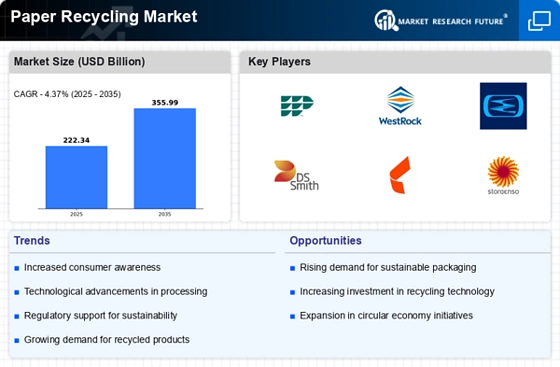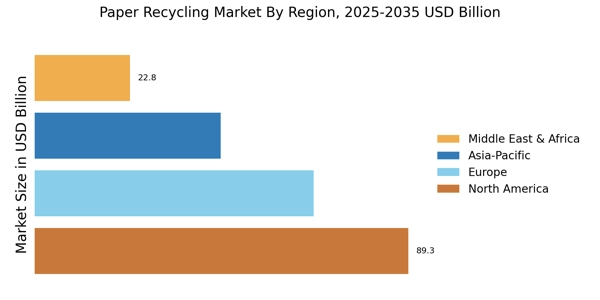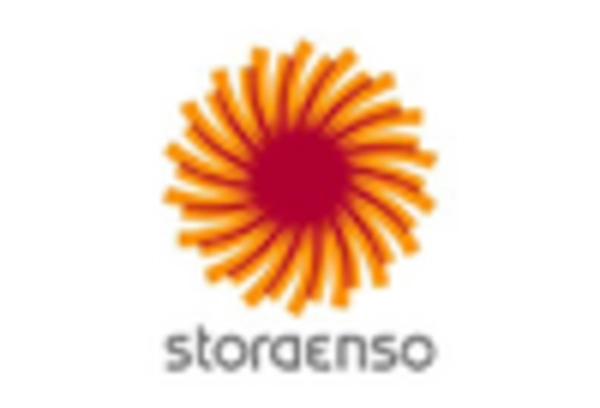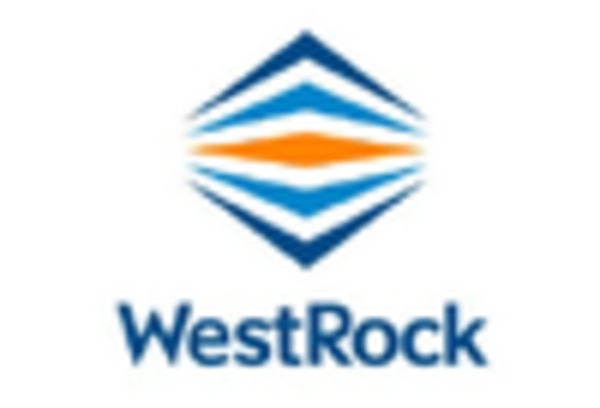Economic Incentives for Recycling
Economic factors play a crucial role in shaping the Paper Recycling Market. Governments and local authorities are implementing various financial incentives to encourage recycling practices. These incentives may include tax breaks, subsidies, or grants for recycling facilities. Such measures not only promote recycling but also stimulate job creation within the sector. In 2023, the economic impact of recycling was estimated to contribute billions to the economy, underscoring the financial viability of the Paper Recycling Market. As these economic incentives continue to evolve, they are likely to bolster the industry's growth and sustainability.
Increased Environmental Awareness
The rising awareness regarding environmental issues appears to be a pivotal driver for the Paper Recycling Market. Consumers and businesses alike are increasingly recognizing the importance of sustainable practices. This heightened consciousness is likely to lead to a surge in demand for recycled paper products. According to recent data, the recycling rate for paper and paperboard reached approximately 66.8% in 2023, indicating a robust commitment to recycling initiatives. As more individuals and organizations prioritize eco-friendly options, the Paper Recycling Market is expected to experience significant growth, driven by this collective shift towards sustainability.
Corporate Sustainability Initiatives
The commitment of corporations to sustainability is increasingly influencing the Paper Recycling Market. Many companies are adopting comprehensive sustainability strategies that include the use of recycled materials in their products. This trend is driven by consumer preferences for environmentally responsible brands. In 2023, a survey indicated that over 70% of consumers are willing to pay a premium for products made from recycled materials. As corporations align their practices with these consumer expectations, the demand for recycled paper is likely to rise, further propelling the Paper Recycling Market.
Technological Innovations in Recycling
Technological advancements are transforming the Paper Recycling Market, enhancing efficiency and effectiveness in recycling processes. Innovations such as automated sorting systems and advanced pulping technologies are streamlining operations, reducing costs, and improving the quality of recycled paper. These developments are crucial as they enable recycling facilities to process larger volumes of paper waste with greater precision. In 2023, the introduction of new technologies has been linked to a 15% increase in recycling rates, suggesting that ongoing investment in technology will be vital for the Paper Recycling Market's future growth.
Regulatory Frameworks Supporting Recycling
The establishment of robust regulatory frameworks is a significant driver for the Paper Recycling Market. Governments are enacting policies aimed at reducing waste and promoting recycling. These regulations often mandate recycling targets and provide guidelines for waste management practices. In 2023, several regions implemented stricter recycling laws, resulting in increased compliance among businesses. This regulatory support not only fosters a conducive environment for recycling but also enhances the overall efficiency of the Paper Recycling Market. As regulations continue to evolve, they are expected to further stimulate growth and innovation within the sector.

















